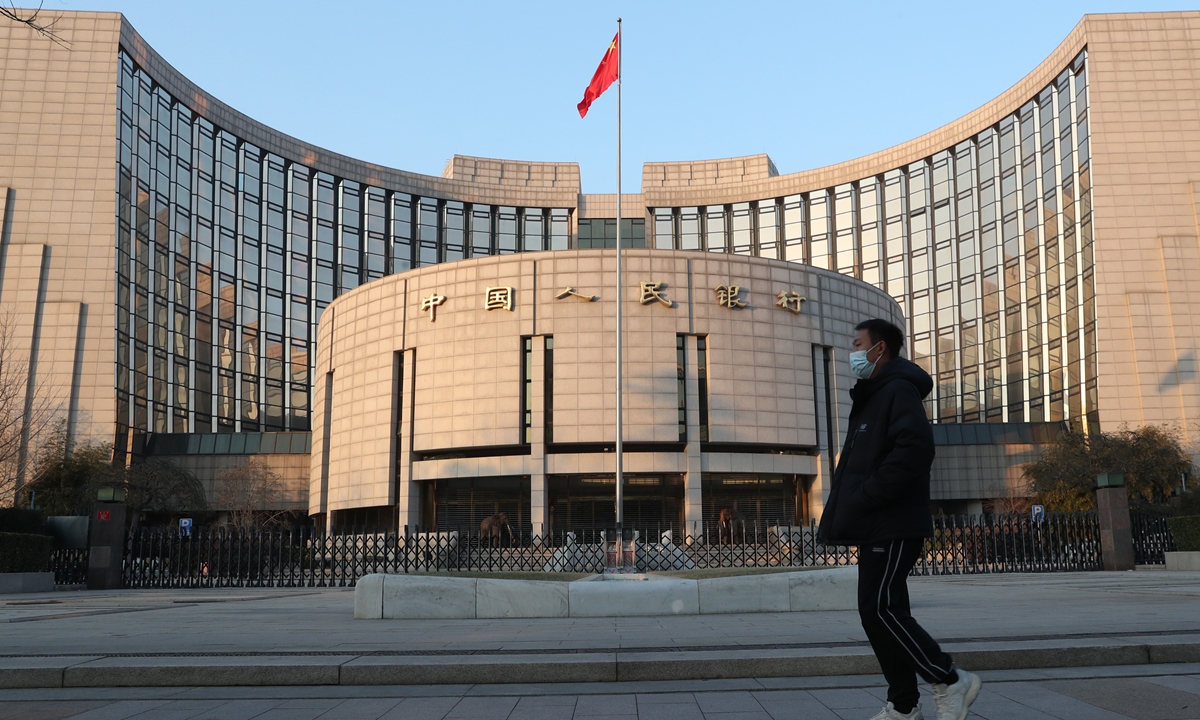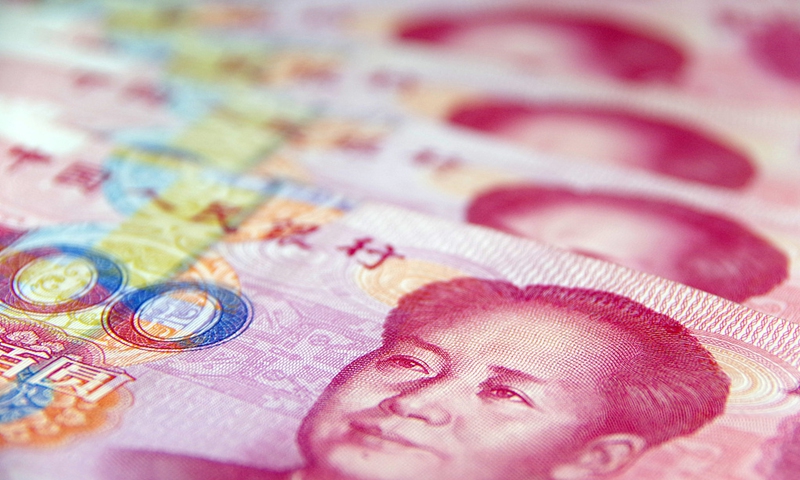Peking University, March 6, 2022: The government work report delivered to the fifth session of the 13th National People's Congress (NPC), China's top legislature, on Saturday repeatedly mentioned growing risks and challenges facing the Chinese economy this year, while maintaining a largely similar tone on fiscal and monetary policies.
China's central bank Photo: CFP
How specifically China plans to achieve a GDP growth target of around 5.5 percent amid these risks and challenges? Will there be any dramatic shift in fiscal and monetary policies?
Analysts noted that with more emphasis on effectiveness and flexibility, China's fiscal and monetary policy arrangements are expected to provide stronger support for the economy to progress steadily, while leaving sufficient room for tackling various risks and uncertainties.
"Macro policies should be kept consistent and made more effective. The proactive fiscal policy should be more effectual, more targeted, and more sustainable. The prudent monetary policy should be both flexible and appropriate, with reasonably ample liquidity being maintained," the government work report stated.
While macro policy consistency will help China to maintain stable economic performance amid downward pressures, the stress on policy effectiveness, which is different from previous years, is of great significance to support the economy amid rising challenges and risks from COVID-19 and geopolitical tensions, experts said.
"There will be no dramatic adjustments in China's fiscal and monetary policy arrangements this year," Cao Heping, an economist at Peking University, told the Global Times on Saturday.
However, stronger policy strength is expected in both monetary and fiscal arrangements and more effective and targeted measures will be introduced this year to offer sufficient boost for the economy, Cao said.
Tax and fee reductions for enterprises will total 2.5 trillion yuan this year, a significance increase from last year's one trillion yuan, according to the government work report.
To help ease burden on businesses, more preferential policies in taxation for small and medium-sized and micro-enterprises are expected to be introduced this year, Cao predicted.
The government work report shows that China sets its 2022 budget deficit target at around 2.8 percent of gross domestic product to boost fiscal sustainability, slightly lower than last year's 3.2 percent. China sets a quota for local government special bond issuance at 3.65 trillion yuan ($578 billion), unchanged from 2021.
Although the deficit ratio has been lowered to 2.8, which seems to be a conservative response to fiscal pressure, the funds that China can actually mobilize are higher than those of last year, experts said, noting it will provide sufficient financial support for economic growth.
RMB Photo:VCG
There are more than 1 trillion yuan of local special bonds from last year that can be carried forward to this year, and some special funds of certain state-owned enterprises can also be accounted into the budget this year, Lian Ping, head of Zhixin Investment Research Institute, told the Global Times.
While continuing to set a prudent tone for the monetary policy, this year's government work report also gives an emphasis of "flexible and appropriate" arrangements, which experts believe indicates China will moderately easy monetary policy according to actual needs.
Some expressions on monetary policy in this year's government work report were not common in the past. The report said China will expand the scale of new loans and make it easier for market entities to access financing, both indicates this year's credit growth rate will be significantly higher than last year's, Lian said.
This year's government work report also repeatedly emphasized the prevention and defuse of major risks. Experts believe that domestic uncertainty and pressure in real estate and other aspects are expected to ease further this year, and external shocks to trade and exchange rate fluctuations should be closely watched.
The Russia-Ukraine conflict is still fermenting, international commodity prices may be further pushed up, and the foreign exchange market is still facing the risk of turbulence, all require China to be fully prepared in terms of its macro policies, Lian said.

